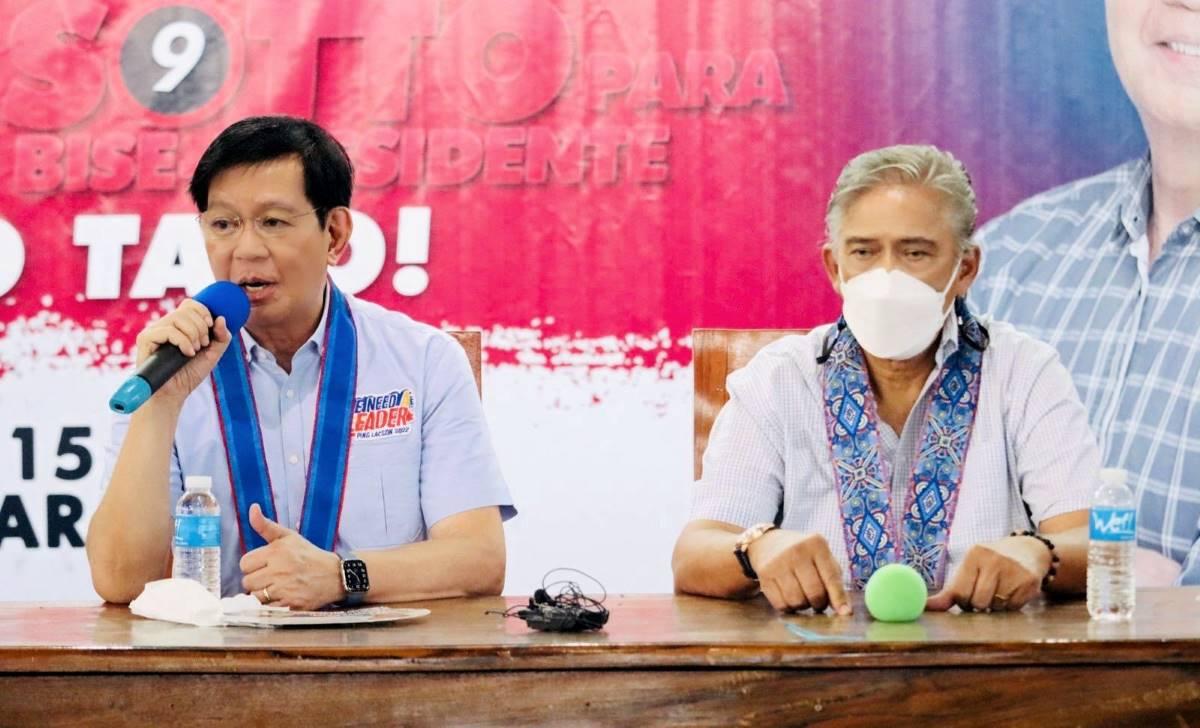Sotto, Lacson welcome SC rules on Anti-Terrorism Act

Former senators Vicente Sotto III and Panfilo “Ping” Lacson on Tuesday expressed support for the procedural rules set by the Supreme Court on petitions and applications concerning the Anti-Terrorism Act, a measure they co-authored.
In a statement, Sotto said the procedural rules “appeared balanced” in protecting the rights of officers and "suspected terrorists."
“But the law gave arresting officers more ‘liberty’ to arrest and file violation of anti-terror law against suspected terrorists without the fear of being charged of an offense. On a personal note, as long as it does not make our law the weakest in the region, fine!” Sotto said.
In a separate statement, Lacson said he “could not agree more” with the SC’s ruling in its interpretation of the law.
Over the weekend, the High Court said that the rules on anti-terrorism cases— covering petitions and applications regarding detentions without judicial warrants of arrest, surveillance and freeze orders, restrictions on travel, designations, and prescriptions, and other court issuances—will take effect on January 15, 2024.
Under the rules, a petitioner is required to establish that the respondent is a terrorist and an outlawed organization or association, and the order is necessary to prevent terrorism through the existence of a probable cause.
The SC also required law enforcement agents or military personnel to obtain a written order from the Court of Appeals to be able to wiretap, overhear and listen to, intercept, screen, read, surveil, record, or collect any private communication.
Meanwhile, individuals suspected of committing any acts in the ATA may be arrested or detained without a judicial warrant of arrest.
Retired Supreme Court justice Antonio Carpio had warned that the Philippines would "permanently" be in a situation "worse than martial law" under the ATA, saying that several provisions in it are unconstitutional. “Under the Constitution, the right against unreasonable arrests is an inviolable, fundamental right. The Constitution uses a word: inviolable. The Anti-Terrorism Act demolishes this inviolable fundamental constitutional right,” he said.
The law allows the detention of terrorism suspects for 14 days, which may be extended by another 10 days, before they have to be charged in court.
For Lacson, this is just extending "the allowable period of detention due to the unusual nature of the crime of terrorism which could arbitrarily endanger the lives of innocent civilians more than the violations of the Revised Penal Code and other special laws."
“The arrest and detention without judicial warrant is akin to citizen’s arrest which is already allowed under existing jurisprudence,” he said.
The Anti-Terrorism Act of 2020 was signed into law by former President Rodrigo Duterte in July 2020, with a total of 37 petitions filed before the Supreme Court seeking to nullify the measure, making it one of the most challenged laws.
The Supreme Court published its full decision and the separate opinions on the Anti-Terrorism Act in February 2022, months after it declared only two parts of the measure unconstitutional. — BM, GMA Integrated News





